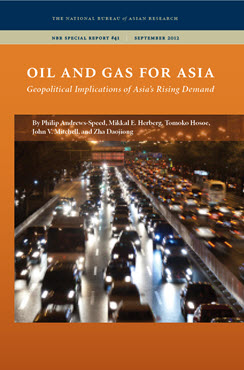China and Iran
Energy and/or Geopolitics
This essay offers a Chinese perspective on the role played by Iran in China’s energy security and contemplates ways for China and the U.S. to address the associated diplomatic challenges.
EXECUTIVE SUMMARY
This essay offers a Chinese perspective on the role played by Iran in China’s energy security and contemplates ways for China and the U.S. to address the associated diplomatic challenges.
MAIN ARGUMENT
Iran is a factor that contributes to and risks deepening the “trust deficit” in diplomatic relations between China and the U.S. For China, access to Iranian energy resources is conditioned by an array of factors, including market-based concerns and considerations of domestic stability within China were Beijing to side with Washington in applying sanctions against Tehran. Beijing is not as forthcoming as Washington would like in dealing with Tehran, but Chinese involvement in multilateral diplomatic forums should not be overlooked. American observers are often tempted to view Chinese diplomacy toward Iran as part of an agenda to confront the U.S. and the wider West. The truth of the matter, however, is much more complex. China’s failure to heed U.S. demands to curtail oil imports and other economic ties to Iran can best be characterized as utilitarian and commensurate with the mutual anxieties that Beijing and Washington hold about each other.
POLICY IMPLICATIONS
China and the U.S. must be imaginative in preventing the Iran issue from undermining their bilateral relations. Rather than continuing to try to form a united front to rein in Tehran’s suspected nuclear weapon program, the two countries should consider alternative measures in the area of energy security:
- The U.S. should appreciate that China offers little that is indispensable to Iran beyond Beijing’s veto power in the UN Security Council.
- If the governments of China and the U.S. can work to enhance the political environment for Chinese and U.S. oil companies to operate jointly in a third country, doing so would help dissuade presumptions that U.S. and Chinese paths to energy security are intrinsically diametric.
- When there is a greater level of bilateral interdependence between China and the U.S. in the energy commodities trade, the prospects for improving public perceptions in China about U.S. demands on issues like Iran should grow.


